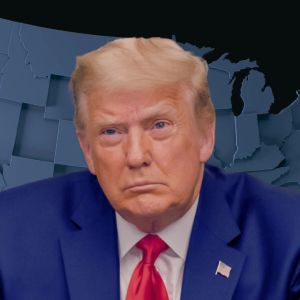Trump is rolling back Biden-era tech export controls
3 min read
Biden saw export controls as a “strategic asset” to keep the U.S. ahead of China in tech, but Trump is now scrapping that policy, signaling a major shift in high‑tech trade with Beijing. The administration informed Nvidia Corp. that its H20 AI accelerator, engineered for the Chinese market, could be sold there again in short order. AMD received the same green light from the Commerce Department, which signaled that exports of more basic AI processors to Chinese developers would now be permitted. According to Commerce Secretary Howard Lutnick, the objective is to get Chinese developers “addicted” to American technology, while still refraining from offering Beijing “our best stuff.” He maintained that this calibrated strategy safeguards America’s leadership in chip innovation without providing China with the unmatched high‑end equipment. According to Bloomberg , by adopting this approach, the United States could remain “one step ahead of what they can build so they keep buying our chips,” he said, thus ensuring that American companies retain a commanding position in global markets. This policy pivot has frustrated legislators advocating a hardline stance toward China and prompts a crucial inquiry as Trump readies for a potential summit with President Xi Jinping. How far will the U.S. go in easing security-driven trade barriers with China? Tech investor Kevin Xu, founder of Interconnected Capital and a former Obama administration official, suggested that relaxing H20 chip restrictions could lead to a broader “tech grand bargain.” He noted that everything from semiconductor fabrication tools and rare-earth minerals to battery systems, AI processors, and reciprocal market entry might feature as leverage in US‑China negotiations. Even with this recent loosening, the US has not moved to dismantle the bulk of its export restrictions, investment barriers, or sanctions. The retaliatory 145% tariffs, among the highest in modern history, were originally imposed to compel China into talks. Yet today’s stance clearly breaks with that near‑separation plan. Earlier discussions held in Geneva and London produced a temporary hold. Washington agreed to reduce certain levies and relax export bans in exchange for rare-earth magnets vital to smartphones, EVs, and sophisticated defense systems. That agreement helped to ease concerns about a complete economic rupture. While Trump’s initial presidency portrayed China as a looming strategic rival, he maintained a distinctly transactional mindset, expressing minimal unease over TikTok’s privacy implications and publicly endorsing Chinese carmakers setting up production lines in America. As Eurasia Group senior analyst Dominic Chiu observes, “He is not ideologically fixated on the need to have controls everywhere”. This means that if he can deploy such measures as bargaining chips, for instance, in discussions over rare-earth supplies or other critical assets, he likely will. This move is part of a broader diplomatic push. Marco Rubio met China’s Foreign Minister Wang Yi in Malaysia, and Treasury Secretary Scott Bessent expects to meet Vice Premier He Lifeng in the next few weeks. Bessent also suggested an extension of the August 12 deadline for reimposing elevated tariffs. Meanwhile, Rubio indicated a Trump‑Xi summit is probable but deferred specifics, emphasizing the need to “build the right atmosphere and the right deliverables” ahead of the Asia‑Pacific Economic Cooperation gathering in South Korea this October. Trump’s objectives echo his 2020 playbook Trump wants China to make large purchases of U.S. goods to reduce the trade gap, crack down on fentanyl precursor exports, agree on terms for TikTok’s U.S. operations, and give assurances it won’t use rare-earth minerals as a weapon. He has even floated the idea that permitting Chinese capital to flow into the US could help correct trade imbalances. In contrast, China’s leadership is seeking the rollback of US levies, such as the 20% tariffs linked to fentanyl-related items and other enduring duties from Trump’s earlier tenure, as well as eased investment restrictions and additional export-control relief. As Kurt Tong of The Asia Group explains, Biden’s strategy of “small yard, high fences” around critical technologies differs from Trump’s willingness to use economic levers, and, as RAND’s Gerard DiPippo notes, “If there’s one president who might go for it, it’s Trump.” Cryptopolitan Academy: Want to grow your money in 2025? Learn how to do it with DeFi in our upcoming webclass. Save Your Spot

Source: Cryptopolitan



